Students Who Protested In Iran Being Banned From School

A number of students detained in Iran during the popular protests are reportedly not allowed to return to school after being released from prison.

A number of students detained in Iran during the popular protests are reportedly not allowed to return to school after being released from prison.
According to reports received by Iran International, education authorities do not allow these students to continue their studies, and the directors of some schools, in cooperation with security institutions, have banned their presence in classrooms.
Some families say the school administrators have told them that the presence of the protesting children in school may have a "negative effect" on other students.
Asghar Baqerzadeh, the Deputy Education Minister had said there is no problem for students who "were active in the recent protests” to continue their studies.
Also, serial poisonings in girls' schools that have endangered the lives of hundreds of children continue at different locations.
In the latest case, Iranian media reported that students of a high school in Boroujerd showed severe poisoning symptoms and 44 students were hospitalized.
This is the third time mass poisoning have been reported at this school in the past week.
The serial poisoning of students in Iran started in December in the religious city of Qom and spread to several other cities.
The government has not determined the cause of the poisonings but some local media say it could be the work of religious zealots who want to prevent girls from attending school.
Teenage schoolgirls joined the antigovernment protests last year and many removed their hijab in protest.
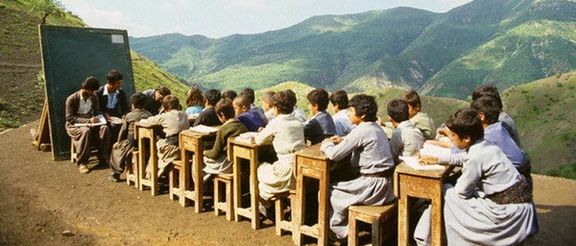
Demands for education to be taught not only in Persian but also in the mother tongue of the many communities within Iran, has gone viral on social media.
Sparked by International Mother Language Day, February 21, some speakers of Iran’s many languages including Turki, Kurdish, Balochi and Arabic, are demanding access to education in their native languages.
Heated discussions have flooded social media, especially among the opposition, with allegations of separatism for the government's policy to enforce only Persian language education.
Proponents of education in mother language argue that teaching only in Persian is detrimental to the development of many children whose mother language is different. Some suggest it can cause psychological pressures on young children when they begin their education, hindering their progress.
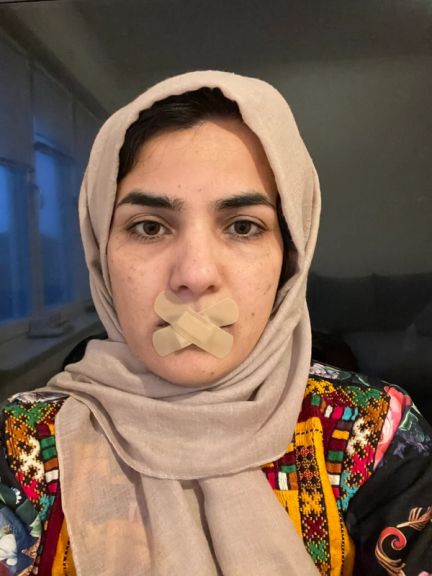
In a paper presented to the Second Development and Educational Equality Conference in 2016, prominent economist Mohsen Renani said over 65 percent of the children who had to repeat the first and second years of school were from nine provinces where the first language is not Persian.
“By forcing education in Persian, we reduce the speed of mental and personal development of around half of the country’s population and deprive them of opportunities in favor of Persian-speaking children,” Renani wrote. In the absence of any official data, Renani estimated the total population of non-Persian speakers between 42 to 49 percent of all Iranians.
Article 15 of the Constitution of the Islamic Republic recognizes Persian as the “official language and script of Iran, the lingua franca of its people.” However, it also recognizes the the use of “regional and tribal languages in the press and mass media, as well as for teaching of their literature in schools.”
Some of the programs of the state broadcaster’s local stations are broadcast in other languages including Turki and Kurdish, Arabic and Gilaki but none of the many languages of Iran are allowed to be taught in schools, whether public or private, despite the Constitution. Learning classical Arabic, however, is compulsory after primary education on religious grounds.
Authorities often shut down cultural and literary societies formed to promote other languages and teachers such as Zahra Mohammadi, a Kurdish language teacher, are often prosecuted on charges of acting against national security. Mohammadi who was serving a five-year sentence was recently released from prison.
The regime is particularly strict about the teaching of languages that are spoken in peripheral areas of the country such as Kurdish and Turki and accuses those who promote these languages of separatism.
Restrictions do not only affect teaching of other languages and publication in those languages. Names can only be chosen from a list of approved Persian and Arabic (religious) names. Mahsa Amini, whose death in custody sparked the recent months of unrest, was named Jina by her family but her birth certificate had to be issued as Mahsa.
A survey by Gamaan Institute a year ago found that 85% of respondents considered Farsi (Persian) as the most appropriate official or common language for Iran and 65% agree that schools should teach native languages in addition to Farsi while 19% of respondents disapproved of this option. On the other hand, 61% disagreed with the statement “I prefer my child to receive higher education in their native language rather than in Farsi”, while 18% agreed.
The survey was carried out between February 17-27, 2022. Over 20,000 respondents over the age of 19 participated in this study. The final sample used in the report consisted of 16,850 Iranians living inside Iran.
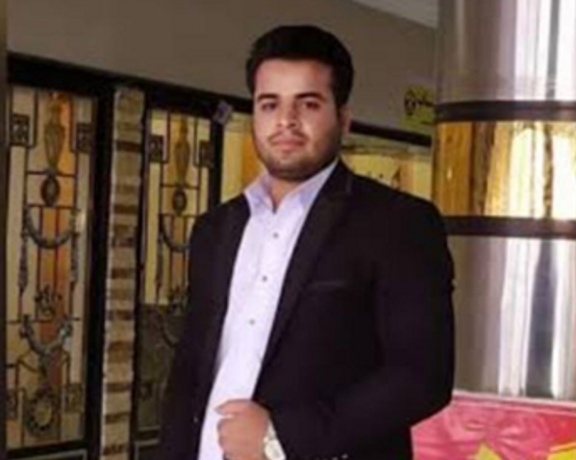
Amnesty International says Ebrahim Rigi, a 24-year Baluch protester in Iran died as a result of beatings and injuries he sustained in police custody this week.
In its statement on Friday, Amnesty also added that “evidence pointing to torture shows once again the Iranian authorities’ horrific assault on the right to life.”
On Thursday, the police commander in Sistan-Baluchistan province reacted to the murder of Ebrahim Rigi claiming that some people having a dispute with the victim had beaten and taken him to the police station while he was unconscious.
Haalvsh website, a local news outlet that monitors rights violations in Iran's Baluchestan region, said in a report that Rigi was arrested on October 13 in connection with popular protests in the southeastern Iranian city of Zahedan.
It quoted local sources as saying that Rigi, a medical intern, had been released on bail but was then rearrested on the street in Zahedan on February 22 and was taken to the police station. He died an hour later.
Reports say the body of Ebrahim Rigi was handed over to his family and relatives on Friday afternoon with bruises and injuries visible and then he was buried in Zahedan.
A large crowd of thousands of protesters gathered in Zahedan on Friday, which has become a weekly practice since September when security forces killed more than 90 people.
Images and videos from Zahedan show the continued presence of security forces in the streets and the deployment of snipers on the hills around the city as well as on some high-rise buildings in the city.
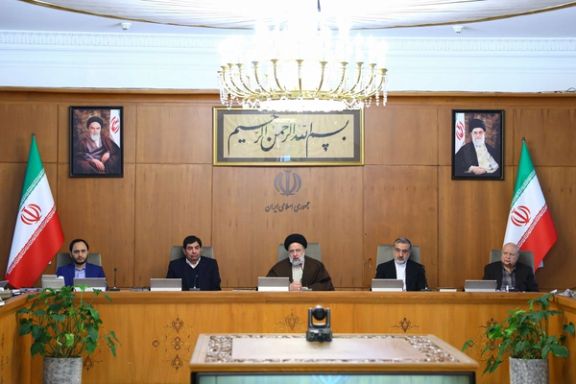
An Iranian reformist cleric says two hardliner factions in Iran control the whole political system and prevent a dialogue to make changes or revise the constitution.
Ahmad Mazani, who was also a lawmaker, likened one group of hardliners to the Islamic State militant group. However, he said that both hardliner factions are reactionaries.
Speaking at the congress of the pro-reform Mardomsalari (Democracy) Party, on Thursday, Mazani said one of the two poles consists of political dwarves. He was presumably referring to the Raisi administration. Also, in an apparent reference to ultraconservatives who challenge the government from within, he called one faction an ISIS-like pole that has deprived Iranians from their right to run "an ordinary life".
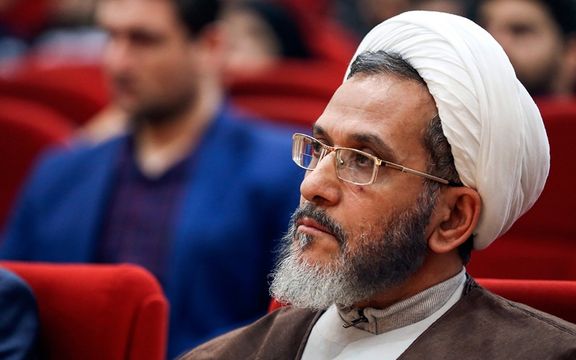
Meanwhile, in an interview with the website of Iranian Sociologists’ Association, prominent academic Mohammad Fazeli said that the current situation in Iran is marked by people’s deep distrust of the government.
Fazeli argued that "in the absence of trust in the government people do not have any long-term plans. In an economy with a double-digit inflation rate and under economic sanctions, political pressures, and the government's intervention in the citizen's private lives, those who have the financial resources will not invest in a factory. They will instead purchase gold and foreign currencies for short-term profit."
Opportunism and short-term planning will become a characteristic of a society in which the people do not trust the government. Such a situation does not leave too many choices for citizens, he said. “
“When the house is on fire, you have only two choices, jumping out of the window or taking the fire exit to make it to safety," he said, adding that "In a society under pressure you cannot expect individuals to consider a series of options. Even if there are really some other options, people tend to choose the ones that help them save themselves as soon as possible."
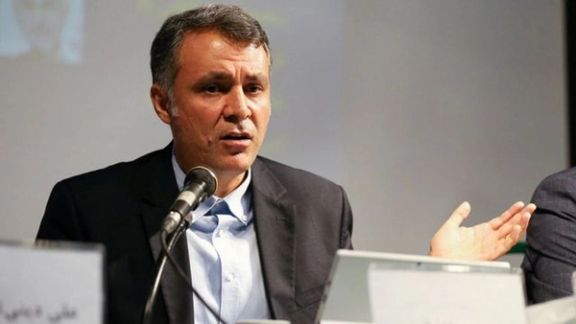
Asked if Iran's future is going to be as horrible as some analysts portray, Fazeli said, "I cannot say for sure, but I can only say it can well end up that way. We have seen other countries in similar situations in the Middle East, the Balkans and Africa. Whether the same thing will happen in Iran depends on other factors," but did not elaborate.
Fazeli said, "The Iranian state television, for instance, has said that as a media outlet that has to convey the government's messages, it has been losing audience during the past years. This is an example of loss of social capital. So, the state television in Iran is no longer a media outlet for the people of Iran. It is a radio and television organization that broadcasts to a small group of people and likes to convince them, not the nation as a whole."
He added, "I believe the only thing on the Iranian state television that is meant for everyone is football. Because it lacks any ideological content and advertisers are happy to pay for commercials." Fazeli added that state TV officials have deliberately decided not to run a television station for all the people.
In the current Iranian crisis, there are also elements who advocate destruction, the sociologist maintained. They believe nothing will be made right before everything goes wrong. In fact, in a situation marked by distrust anything goes.
The academic reiterated that lost social trust cannot be restored easily. "The government needs to take the first step for confidence building by engaging in symbolic acts. It should offer gestures to the society that indicate there is a will in the government to make things right."

The Iranian regime was determined to prevent the Sunni population of Zahedan to hold another round of protests Friday by heavily deploying its security forces.
However, worshippers held their customary Friday protest rally in the provincial capital of Sistan-Baluchestan following prayers, chanting "Death to Khamenei" and "Death to IRGC."
Due to internet shutdown by the government, the sermon by outspoken Sunni leader Mowlavi Abdolhamid was not broadcast live. Internet watchdog NetBlocks confirmed that the real-time network data showed a significant disruption to connectivity in Zahedan. “The incident comes amid a growing security presence during Friday protests," said NetBlocks.
Makki Grand Mosque, where Abdolhamid usually delivers his Friday sermons, was under siege since the early hours of Friday and security forces tried to enter the Sunni mosque but were confronted by angry people. Some social media videos show snipers stationed on the roofs of the buildings and hills in the area.
"We swear on our comrades' blood to stand strong until the end," hundreds of demonstrators were seen chanting in a video from the flashpoint city. Another widely-circulated video showed security forces beating and arresting a Baluch man trying to enter the Makki Mosque.
Similar protests were also reported in other cities of the province such as Khash and Rask.
An audio file of Friday prayer sermons was released to media later in the day, in which Abdolhamid condemned the crackdown that has been going on for over five months across the country, calling for restraint by regime forces.
"Listen to the people and the opposition, and if you cannot solve the problems of the people, leave and let someone who can solve come forward,” he said, implying the need for fundamental change.
"There are problems with domestic policies, and these problems have led to people's protests," Abdolhamid said, adding that the country is in “a serious crisis” and it requires major thinking emerge from it.
Decrying the economic hardships imposed on the people due to rising inflation and devaluation of the national currency, he said that Iran is a rich country and such problems stem from maladjusted domestic and foreign policies. This is the result of having tensions with many countries, he noted.
"Accept that your policies are wrong... we are not your enemies, we feel sorry for the people who do not have the power to buy bread and meat," he added.
He also talked about the massacre of people in the city, known as Bloody Friday, which took place on September 30, when security forces killed more than 80 people, including women and children.
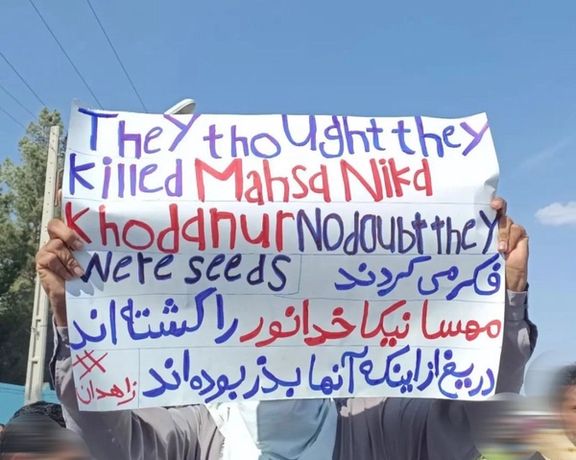
Calling for the truth to be clarified, he said that people were shot at from four directions and nearly 100 people, including 18 children, were killed; 300 were injured, 80 of whom are still hospitalized; 17 people were shot in the eyes.
Mowlavi Abdul-Ghaffar Naqshbandi, the prayer leader of the city of Rask, issued a statement on Friday, threatening the regime of “a historic fatwa.” A fatwa is legal ruling is Islamic which reflects changing economic, social and political circumstances, and is usually abided by the Muslims.
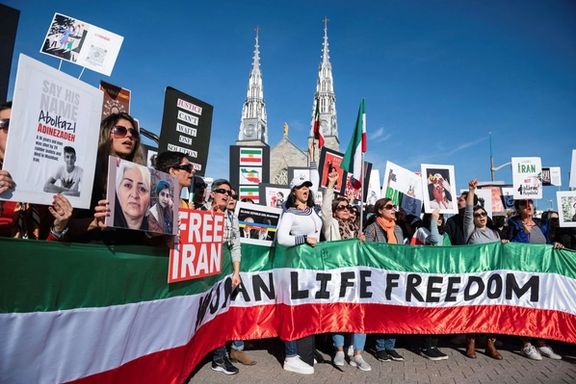
The Canadian government has announced it will facilitate the process for Iranian temporary residents in Canada looking to extend their stay.
In a statement on Thursday, the Canadian government cited the Islamic Republic's crackdown on the current wave of protests as the reason behind the new measures. “Canada is committed to protecting Iranians already in Canada, and to helping Iranian families stay together. In light of the gross and systematic human rights violations being committed by the Iranian regime during its brutal crackdown on protesters, some may wish to prolong their stay in Canada rather than return home at this time,” read the statement.
"Effective March 1, 2023, these measures will make it easier for Iranians who wish to extend their temporary status in Canada and to move between temporary streams, allowing Iranians to continue studying, working or visiting family by applying for a new permit from inside Canada," it added.
The Canadian government said an open work permit pathway will be made available for Iranians already in Canada, adding that applications from Iranians in Canada will also be processed on a priority basis.
Canada also said it was waiving certain processing fees for Iranians who wish to extend their stay in Canada, and will also waive passport and permanent resident travel document fees for citizens and permanent residents of Canada in Iran who wish to leave.
"Canada will not stand idly by in the face of these aggressions as the Iranian regime continues its ongoing human rights violations," Canadian Immigration Minister Sean Fraser said.